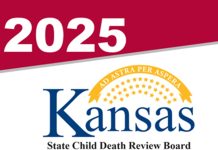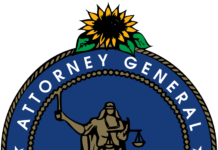State universities and community colleges would be barred from requiring statements about diversity, equity or inclusion as a condition of admission, financial aid or hiring faculty under a bill backed by a Republican lawmaker from Salina.
State Rep. Steven Howe renewed his effort from last year to address DEI, when the governor vetoed a measure added to the state budget preventing state universities from asking job applicants about diversity, equity and inclusion.
The budget proviso prevented state universities from demanding job applicants to articulate their experience or commitment to diversity, equity and inclusion. The Legislature failed to override the governor’s veto of the provision.
The new measure, heard Wednesday in the Higher Education Budget Committee, bars Kansas post secondary schools from requiring anyone from making a statement of personal
support for or in opposition to any political ideology or movement.
The bill, which also applies to technical colleges, bans schools from requiring pledges or statements regarding “diversity, equity, inclusion, patriotism or related topics.”
Howe brought the bill forward because he had persisting questions about university job postings that have asked candidates about diversity, equity and inclusion.
He pointed to two examples on Wednesday, one for an assistant professor of aerospace at the University of Kansas and another from Kansas State for an assistant professor of precision agriculture.
He showed those job listings to the committee where job applicants were asked about their experience working with people from diverse backgrounds and their commitment to diversity, equity and inclusion. The K-State job posting asked for a one-page statement about DEI.
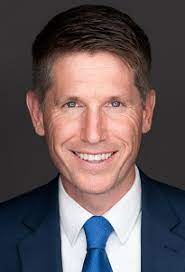
“As you can see, my concern still remains,” Howe said.
“I believe that requiring statements or adherence to a particular ideology as a condition for admissions, employment, reappointment or a promotion may violate the constitutional rights of our citizens,” Howe told the committee that he also chairs.
“It can stifle freedom of speech, it can limit academic freedom and it can limit our intellectual diversity or diversity of thought on our campuses,” he said.
Howe said state universities have chosen ideology as a litmus test instead of using merit in making decisions about employment and promotions.
He said neither the state universities nor the Board of Regents have demonstrated any intention to respond to the issue raised last session.
“It’s really left to us in the Legislature to address it,” he said.
Howe said the legislation he’s backing was a model bill developed by the Foundation for Individual Rights and Expression, a nonprofit civil liberties group that says its mission is protecting freedom of speech on college campuses.
The bill would authorize the attorney general to file a lawsuit to stop a prohibited action or policy.
In addition to court-imposed sanctions, the state treasurer would be required to impose an administrative penalty of $100,000 for each violation after notice and an opportunity was provided for the institution to have a hearing.
The bill does not prohibit institutions from requiring students, faculty members or employees to comply with federal or state law, including anti-discrimination statutes.
Howe said he tried to keep the language in the bill broad so it wasn’t limited to only DEI, a point that drew concern from the president and CEO from the Board of Regents.
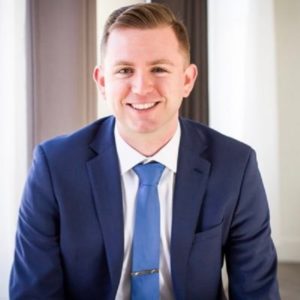
Democratic state Rep. Brandon Woodard of Lenexa asked Howe for a definition of diversity, equity and inclusion.
Howe said the words individually could be defined differently from how the words grouped together would be when used by a university.
“I’m not going to stand up here and give you a definition,” he said.
“I’ve looked at numerous organizations that have provided different definitions and even if you go to various universities, they’ll have their own glossary of terms and how they define it,” Howe said.
Woodard asked Howe why the bill didn’t apply to private colleges in Kansas.
“You mentioned not wanting to discriminate against people with different ideologies, that makes me curious why this doesn’t apply to our private institutions,” he said.
“If we want to talk about discrimination, we have private colleges in this state of Kansas that are denying admission or expelling students for being LGBTQ, they are denying admission or expelling students for having pre-marital sex and pre-marital pregnancies.”
Tyler Coward, legal counsel of government affairs for the group that drew up the model legislation, said that bringing private colleges under the scope of the bill would run into constitutional issues.
“I think that including nonpublic institutions in this bill might cause a real constitutional problem,” he said.
“When it comes to the compelled speech issue in this bill, a private university can say, ‘We want a faculty all committed to DEI and social justice’ and that university can and should exist in this state outside of government interference,” he said.
Coward told legislators that while DEI offices have the noble purpose of giving all students the opportunity to succeed, they have veered into other area such as curriculum, faculty hiring and tenure decisions.
“When public institutions of higher education seem to compel students, faculty and applicants to conform to a particular ideological position, they’re not just setting bad policy, they are violating the free speech and academic freedom rights of student and faculty.”
Blake Flanders, president and CEO of the Kansas Board of Regents, testified as “neutral” but expressed concern about vagueness in the bill.
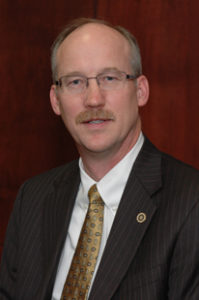
He referred to the section of the bill that bans schools from requiring pledges or statements regarding “diversity, equity, inclusion, patriotism or related topics.”
“This body will make the law, and we’ll spend a lot of time interpreting the law in the judicial branch,” Flanders said. “What is the ‘or related topics’?”
“I know there is a concern about diversity, equity and inclusion initiatives and practices in Kansas higher education,” he said.
“But I am concerned about this ambiguity in this initial statement and this catch-all term that refers to ‘related topics,'” he said.
The issue of DEI has been getting heightened attention in the Legislature in recent weeks.
Gov. Laura Kelly’s reappointment to the Kansas Board of Regents, Jon Rolph, came under scrutiny about DEI during his confirmation hearing.
The Senate education committee passed Rolph’s nomination out to the full Senate favorably, but it still hasn’t been acted on by the full chamber.
Last spring, Howe got the legislative post-audit committee to approve an audit examining how much each state university spends on diversity-related departments.
The audit is collecting data from university staff to determine how many departments they’ve operated and how many staffers they’ve employed for DEI purposes.
Auditors also are examining data from the universities to determine how much state funding they’ve spent on DEI-related training.
Howe said he sought similar information from the state universities but received a 76-page report that “snowed me with information” and didn’t answer his questions directly.


